#mod character
Explore tagged Tumblr posts
Text
guess who's back on my mind!!

I kinda wanna give them non-shadowed designs
( @pseudowandered iirc you like them)
#shadow wilson#shadow wilson dst#mod character#wod#mod character dst#dst#don't starve#don't starve together#shadow wilson x wod
64 notes
·
View notes
Text
I've decided the spend the holidays working on a Cassette Beasts mod to add in my own OC. My special boy. My little baby. My silky spooder.
Work is going well, I'm currently trying to get the sprites for fusions made. After that I'll need to figure out the whole "actually modding the game and not just making sprites" part.
I'm kinda surprised just how few custom monster mods there are. No one has even made a Goku, which is particularly suprising.
Anyway this is what I have so far, it's all animated and ready, just need to finish up the fusion stuff.

This is probably the best sprite work I've ever made tbh, but i don't do all that much anyway so it's not much competition.
edit: update. i think i finished all the fusion sprites i needed. i made this rough mockup of it, it all seems to be good so imma try poking around to see how hard it is to actually implement this shit.
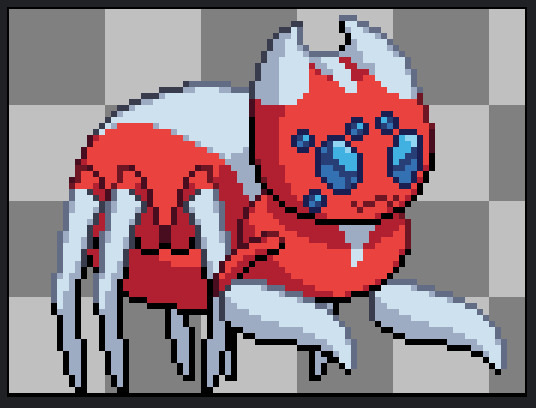
#casette beasts#mod development#mod character#mod#just spider things#my art#my post#this is entirely self-indulgence#no other reason
5 notes
·
View notes
Note
Mods, I Need To Know Enndy's Favorite Food. S h o w.
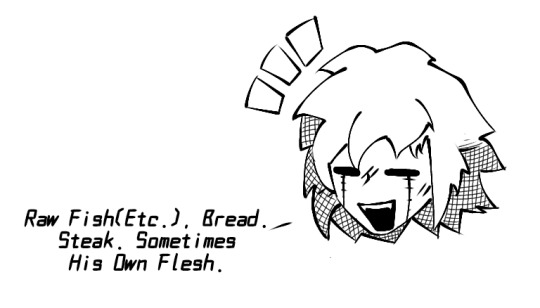
4 notes
·
View notes
Text
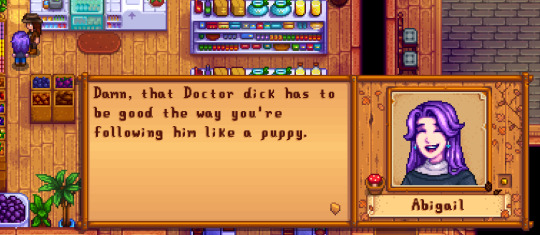
i love dialogue mods. i walk into the grocery store to buy some cooking oil and abigail calls me a faggot
#my first reaction to this was to audibly go you cant be sayin that shit white baby#im playing the most character accurate version of stardew actually#stardew valley#sdv#sdv abigail#sdv harvey#sdv harvey x farmer#sdv mods
19K notes
·
View notes
Text

surely someone has done this…
#shane stardew valley#jas stardew valley#jester lavorre#shane was already my favorite but then i downloaded that immersive characters: shane mod#and now he’s my very very favorite#stardew valley#stardew fanart#critical role#comics#critical role campaign 3#sdv shane#sdv fanart#heppileppi#artists on tumblr
5K notes
·
View notes
Text

#mod post#garfield#this is the only time bullying is okay#how many childhood characters does he have to half ass
8K notes
·
View notes
Text
That character design you're doing could be fat btw. You can make them fat. That character you're drawing should be fat tbh
829 notes
·
View notes
Text

#sinners 2025#sinners movie#sinners#remmick#remmick sinners#jack o'connell#mod post#i love bullying fictional characters
607 notes
·
View notes
Text
Where to Start Your Research When Writing a Disabled Character
[large text: Where to Start Your Research When Writing a Disabled Character]
So you have decided that you want to make a disabled character! Awesome. But what's next? What information should you decide on at the early phrase of making the character?
This post will only talk about the disability part of the character creation process. Obviously, a disabled character needs a personality, interests, and backstory as every other one. But by including their disability early in the process, you can actually get it to have a deeper effect on the character - disability shouldn't be their whole life, but it should impact it. That's what disabilities do.
If you don't know what disability you would want to give them in the first place;
[large text: If you don't know what disability you would want to give them in the first place;]
Start broad. Is it sensory, mobility related, cognitive, developmental, autoimmune, neurodegenerative; maybe multiple of these, or maybe something else completely? Pick one and see what disabilities it encompasses; see if anything works for your character. Or...
If you have a specific symptom or aid in mind, see what could cause them. Don't assume or guess; not every wheelchair user is vaguely paralyzed below the waist with no other symptoms, not everyone with extensive scarring got it via physical trauma. Or...
Consider which disabilities are common in real life. Cerebral palsy, muscular dystrophy, stroke, cataracts, diabetes, intellectual disability, neuropathy, multiple sclerosis, epilepsy, thyroid disorders, autism, dwarfism, arthritis, cancers, brain damage, just to name a few.
Decide what specific type of condition they will have. If you're thinking about them having albinism, will it be ocular, oculocutaneous, or one of the rare syndrome-types? If you want to give them spinal muscular atrophy, which of the many possible onsets will they have? If they have Ehlers-Danlos Syndrome, which one out of the 13 different types do they have? Is their amputation below, or above the knee (it's a major difference)? Not all conditions will have subtypes, but it's worth looking into to not be surprised later. This will help you with further research.
If you're really struggling with figuring out what exact disability would make sense for your character, you can send an ask. Just make sure that you have tried the above and put actual specifics in your ask to give us something to work with. You can also check out our "disabled character ideas" tag.
Here are some ideas for a character using crutches.
Here are some ideas for a character with a facial difference (obligatory link: what is a facial difference?).
If you already know what disability your character is going to have;
[large text: If you already know what disability your character is going to have;]
Start by reading about the onset and cause of the condition. It could be acquired, congenital, progressive, potentially multiple of these. They could be caused by an illness, trauma, or something else entirely. Is your character a congenital amputee, or is it acquired? If acquired - how recently? Has it been a week, or 10 years? What caused them to become disabled - did they have meningitis, or was it an accident? Again, check what your options are - there are going to be more diverse than you expect.
Read about the symptoms. Do not assume or guess what they are. You will almost definitely discover something new. Example: a lot of people making a character with albinism don't realize that it has other symptoms than just lack of melanin, like nystagmus, visual impairment, and photophobia. Decide what your character experiences, to what degree, how frequently, and what do they do (or don't do) to deal with it.
Don't give your character only the most "acceptable" symptoms of their disability and ignore everything else. Example: many writers will omit the topic of incontinence in their para- and tetraplegic characters, even though it's extremely common. Don't shy away from aspects of disability that aren't romanticized.
Don't just... make them abled "because magic". If they're Deaf, don't give them some ability that will make them into an essentially hearing person. Don't give your blind character some "cheat" so that they can see, give them a cane. Don't give an amputee prosthetics that work better than meat limbs. To have a disabled character you need to have a character that's actually disabled. There's no way around it.
Think about complications your character could experience within the story. If your character wears their prosthetic a lot, they might start to experience skin breakdown or pain. Someone who uses a wheelchair a lot has a risk of pressure sores. Glowing and Flickering Fantasy Item might cause problems for someone photophobic or photosensitive. What do they do when that happens, or how do they prevent that from happening?
Look out for comorbidities. It's rare for disabled people to only have one medical condition and nothing else. Disabilities like to show up in pairs. Or dozens.
If relevant, consider mobility aids, assistive devices, and disability aids. Wheelchairs, canes, rollators, braces, AAC, walkers, nasal cannulas, crutches, white canes, feeding tubes, braillers, ostomy bags, insulin pumps, service dogs, trach tubes, hearing aids, orthoses, splints... the list is basically endless, and there's a lot of everyday things that might count as a disability aid as well - even just a hat could be one for someone whose disability requires them to stay out of the sun. Make sure that it's actually based on symptoms, not just your assumptions - most blind people don't wear sunglasses, not all people with SCI use a wheelchair, upper limb prosthetics aren't nearly as useful as you think. Decide which ones your character could have, how often they would use them, and if they switch between different aids.
Basically all of the above aids will have subtypes or variants. There is a lot of options. Does your character use an active manual wheelchair, a powerchair, or a generic hospital wheelchair? Are they using high-, or low-tech AAC? What would be available to them? Does it change over the course of their story, or their life in general?
If relevant, think about what treatment your character might receive. Do they need medication? Physical therapy? Occupational therapy? Orientation and mobility training? Speech therapy? Do they have access to it, and why or why not?
What is your character's support system? Do they have a carer; if yes, then what do they help your character with and what kind of relationship do they have? Is your character happy about it or not at all?
How did their life change after becoming disabled? If your character goes from being an extreme athlete to suddenly being a full-time wheelchair user, it will have an effect - are they going to stop doing sports at all, are they going to just do extreme wheelchair sports now, or are they going to try out wheelchair table tennis instead? Do they know and respect their new limitations? Did they have to get a different job or had to make their house accessible? Do they have support in this transition, or are they on their own - do they wish they had that support?
What about *other* characters? Your character isn't going to be the only disabled person in existence. Do they know other disabled people? Do they have a community? If your character manages their disability with something that's only available to them, what about all the other people with the same disability?
What is the society that your character lives in like? Is the architecture accessible? How do they treat disabled people? Are abled characters knowledgeable about disabilities? How many people speak the local sign language(s)? Are accessible bathrooms common, or does your character have to go home every few hours? Is there access to prosthetists and ocularists, or what do they do when their prosthetic leg or eye requires the routine check-up?
Know the tropes. If a burn survivor character is an evil mask-wearer, if a powerchair user is a constantly rude and ungrateful to everyone villain, if an amputee is a genius mechanic who fixes their own prosthetics, you have A Trope. Not all tropes are made equal; some are actively harmful to real people, while others are just annoying or boring by the nature of having been done to death. During the character creation process, research what tropes might apply and just try to trace your logic. Does your blind character see the future because it's a common superpower in their world, or are you doing the ancient "Blind Seer" trope?
Remember, that not all of the above questions will come up in your writing, but to know which ones won't you need to know the answers to them first. Even if you don't decide to explicitly name your character's condition, you will be aware of what they might function like. You will be able to add more depth to your character if you decide that they have T6 spina bifida, rather than if you made them into an ambiguous wheelchair user with ambiguous symptoms and ambiguous needs. Embrace research as part of your process and your characters will be better representation, sure, but they will also make more sense and seem more like actual people; same with the world that they are a part of.
This post exists to help you establish the basics of your character's disability so that you can do research on your own and answer some of the most common ("what are symptoms of x?") questions by yourself. If you have these things already established, it will also be easier for us to answer any possible questions you might have - e.g. "what would a character with complete high-level paraplegia do in a world where the modern kind of wheelchair has not been invented yet?" is more concise than just "how do I write a character with paralysis?" - I think it's more helpful for askers as well; a vague answer won't be of much help.
I hope that this post is helpful,
mod Sasza
#mod sasza#writing reference#writing advice#writing resources#writeblr#writing disabled characters#writing resource#long post#writing tips#writing guide
4K notes
·
View notes
Text
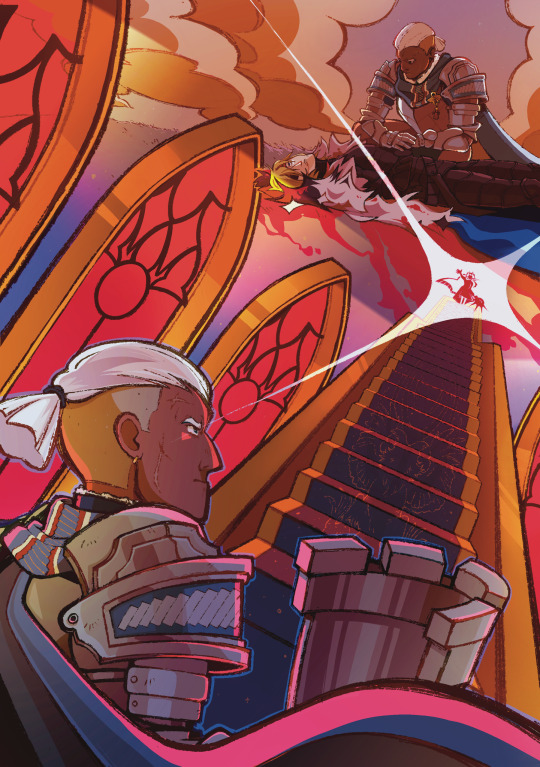
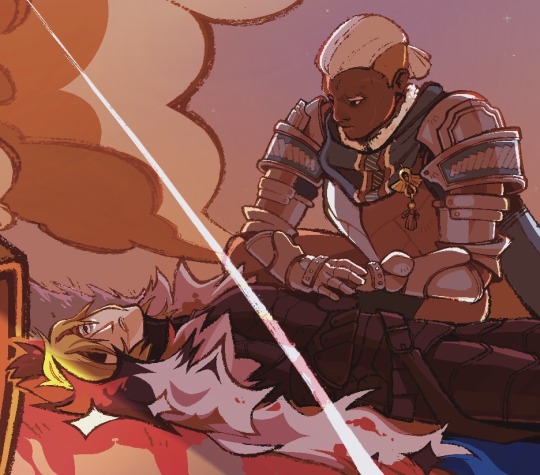
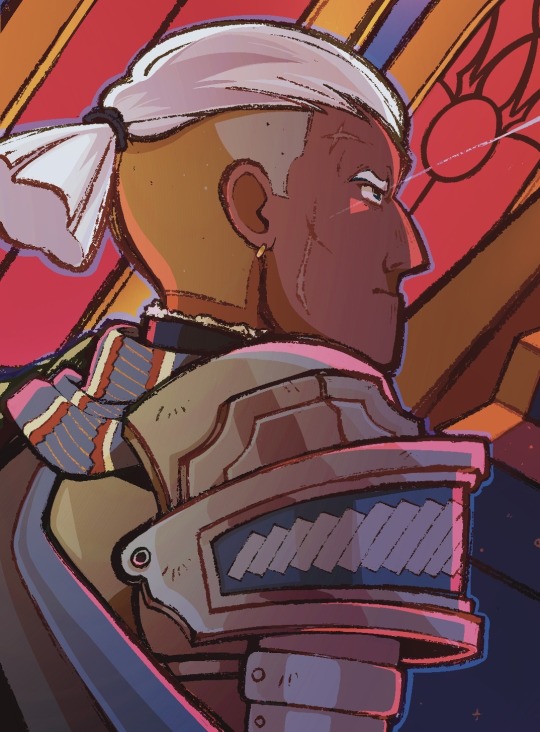
ally phase
my piece for Reunion at Dawn, a fe3h 5-year anniversary fanzine :)
#thank you mods for allowing me to draw thinly veiled dimidue angst 🫡❤️#so happy that I could finally draw my favorite character for this project :) I love you dedue#fire emblem#fire emblem three houses#dedue molinaro#dimitri alexandre blaiddyd#edelgard von hresvelg#(barely im sorry)#dimidue#fe3h#hARTcore
633 notes
·
View notes
Text
POV: you decided to open up that sh0ckw4v3 livestream
#in case you were wondering what was going on while brainstorm was bothering perceptor#colored names are canon characters#except some1cuckme idk who that is but feel free to make assumptions maybe one of them will become true#im gonna give you guys 3 guesses about who acousticshock is#yes shockwave is modding perceptor's chat while doing this don't ask me how#this is hands down the raunchiest thing ive ever drawn#onlycons au#my art#animatic#valveplug#tf shockwave#maccadam
434 notes
·
View notes
Text
“What’s that smell?”
#cal kestis#jedi survivor#testing newly-discovered character animations AND threatening to burn Cal’s stinky ponchos#cal rarely contributes to the side conversations but he always listens#he’s just happy to have his crew back :’)#bode akuna#merrin#greez dritus#jedi survivor mod#star wars jedi survivor#Star Wars#alt angle cutscene#(technically not but how do i tag these????)#uuu photomode
512 notes
·
View notes
Text
My mod is completely done!
https://steamcommunity.com/sharedfiles/filedetails/?id=3372249227
I made a custom monster for Cassette Beasts using my own OC, Weaver. It was entirely self indulgent but people seem to enjoy it! It's currently front page on the, admittedly sparce, workshop.
Load it up and play with him all you like!
#cassette beasts#modding#mod development#mod character#modded monster#custom monster#mod monster#just spider things#weaver
2 notes
·
View notes
Text


What a wet guy ...
#aaaahhhh#he had so muuchh funnn#i am so happy for him ♡♡♡ 🥺🥺🥹🥹🥹🥹✨️#mod posting#second character that got wet#he's only good at water sport (in mermaid mode) we'll never see him this wet on land it's so refreshing
597 notes
·
View notes
Text
Now, for your viewing pleasure... with music!
Beware the Dreadwolf's bite!
#dragon age#solas#my screenshots#elf#solavellan#dragon age screenshots#solas x lavellan#virtual photography#dragon age 4#dragon age solas#da4#dai solas#solas dragon age#datv solas#datv#solavellan hell#solas x inquisitor#dragon age modding#dreadwolf#veilguard#these character swaps are getting out of hand#sorry not sorry#solas x female lavellan#solas x rook#solas x oc#inquisitor lavellan#lavellan#solas da4#solas datv#dragon age the veilguard
833 notes
·
View notes